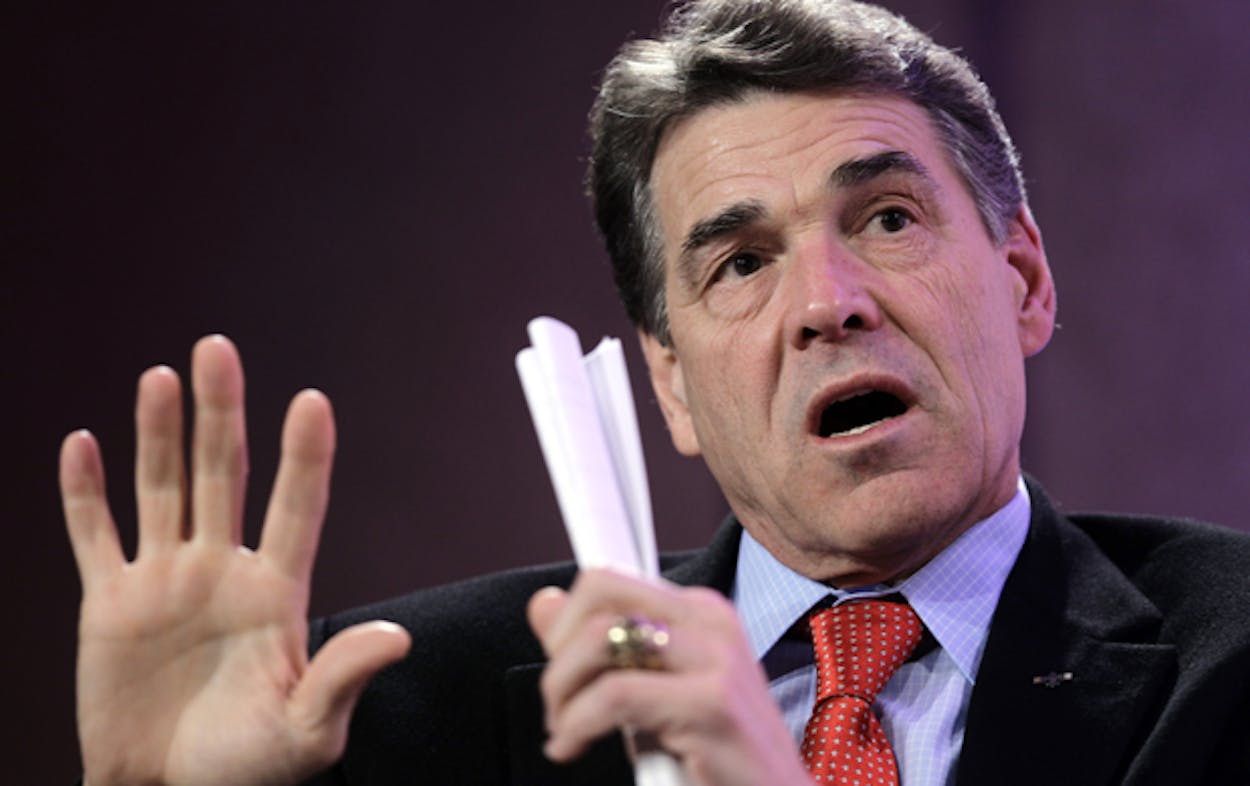The Department of Energy was expected to release a report on Friday detailing the current health of the U.S. electric grid, but delayed its release until July. The document has made many people who support renewable energy nervous. The project is led by Travis Fisher, a recent DOE appointee who authored a report in 2015 for the Houston-based Institute for Energy Research—a group that’s heavily subsidized by the fossil fuel industry—that declared clean energy to be a greater threat to the reliability of our power grid than terrorism or cyber attacks.
The Energy and Policy Institute—an environmentally-focused organization out of California—highlighted Fisher’s background on their website. Renewable energy groups the American Wind Energy Association and Advanced Energy Economy jointly commissioned an independent study to preemptively refute the idea that wind and solar have harmed the power grid, or a threat to do so in the future. According to Reuters:
The groups commissioned the report shortly after Energy Secretary Rick Perry in April ordered a 60-day study of the reliability of the grid and said Obama-era policies offering incentives for the deployment of renewable energy had come at the expense of energy sources like coal and nuclear.
With the 60-day deadline for the DOE study looming this month, AWEA and AEE released their own analysis of the issue performed by economic consulting firm Analysis Group.
The authors of the analysis found that the rapid growth of renewable energy and related policies were “a distant second to market fundamentals in causing financial pressure” on coal plants without long-term contracts. Market forces such as new, more-efficient efficient natural gas plants, low natural gas prices and flat electricity demand are the biggest contributor to coal plants’ inability to compete, the report found.
The report from AWEA and AEE was expected to be released the same week as the sixty-day DOE report—but it was announced that it would be delayed until after the sixty-day guidance has passed in July. A DOE spokeswoman quoted in Axios explained that the study is “nearing completion,” but didn’t otherwise offer an explanation for the delay.
No one knows for sure what to expect from the study, but it’s likely to suggest that the pro-renewable policies championed by the Obama administration—and supported by Perry when he was governor of Texas—hurt the reliability of our grid by blaming them for the retirement of coal and nuclear plants. That’s a position that’s not just controversial with environmental groups and renewable energy organizations, but also with red state leaders where much of the clean energy exploration happens.
Senator Chuck Grassley, a Republican from Iowa, was one of the first to let Secretary Perry know that he had serious concerns. In a letter to the DOE that the senator also published on his website, Grassley openly questioned Perry’s decision to complete the study in sixty days, calling it “hastily-developed” and expressing concerns that it may have “pre-determined” its conclusions, and questioned whether it would be “credible, relevant, or worthy of valuable taxpayer resources.”
Iowa, of course, is a wind power state—36 percent of the energy in the state is generated from wind, triple the already-impressive percentage we see in Texas—which helps explain why Grassley took such a sharply divergent stance from his party’s president and cabinet on the matter.
Further complicating Fisher’s study is the fact that a similar study was completed in 2012—after a two-year research period, rather than sixty days—and that it found that none of the concerns that critics expect to find in the Fisher report were credible.
Perry, meanwhile, has been busy making environmentalists nervous on other grounds this week. The delayed report means we don’t know exactly where the Department of Energy stands on renewable sources right now—but we do know that if Perry surprises critics and continues to support the sort of policies he backed when he was leading Texas, it won’t be for environmental reasons. Speaking on CNBC this week, the secretary disagreed with the assessment that “CO2 is the primary control knob for the temperature of the Earth,” arguing that it was “ocean waters” and “this environment that we live in.” (He wasn’t asked what he believed the “control knob” might be for ocean waters or the environment.) Testifying before Congress, he reiterated his skepticism of the scientific consensus that CO2 drives climate change.
All of which is to say that while we don’t know what the report, when it’s eventually released, will say—or even why it’s been delayed. But based on what we know so far, environmentally-minded critics should probably not get their hopes up.
- More About:
- Politics & Policy
- Energy
- Wind Power
- Rick Perry








